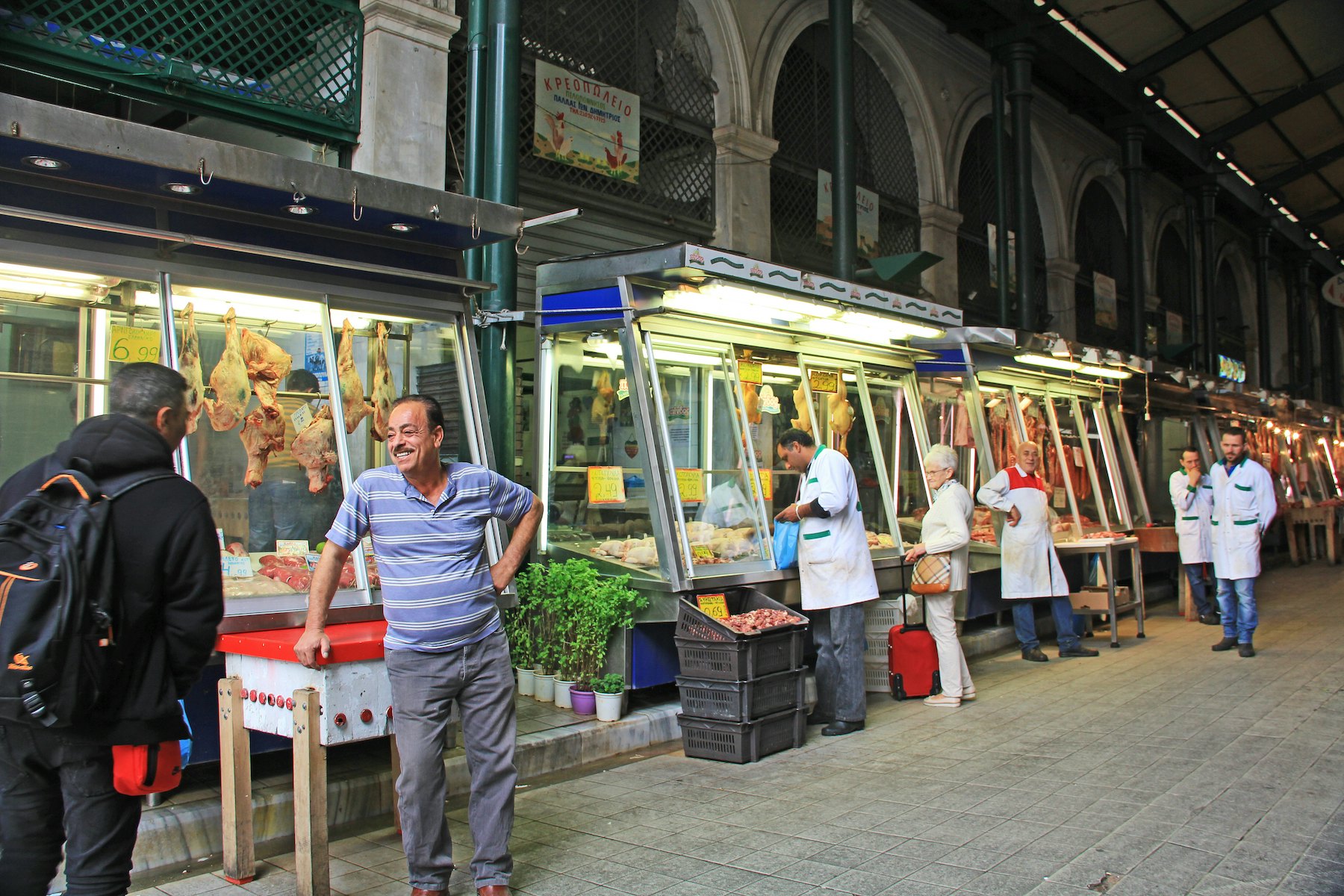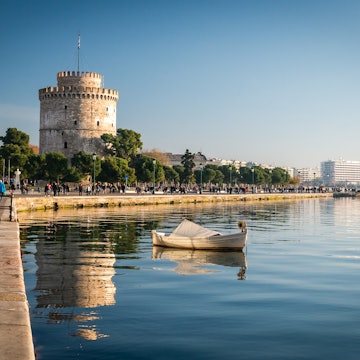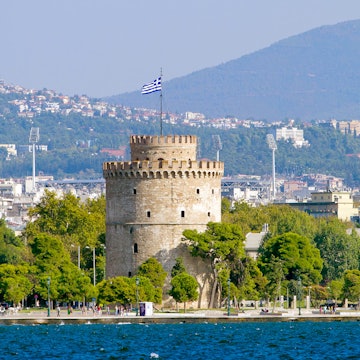
How to explore Athens for free



Exploring the ancient world and vibrant neighborhoods of Athens doesn’t have to cost the earth © cge2010 / Shutterstock
Soaking up the sights in Athens doesn’t have to break the bank. Even with its huge number of top-flight, world-class sights, the Greek capital is a very reasonably priced city, an ideal European bargain destination.
While entry fees to top-tier sights can add up – entry to the Acropolis costs €20, and getting into the Acropolis Museum will run you another €10 – you won’t find yourself shut out even if you’re counting every euro. In fact, there are plenty of ways to experience this historic city without spending a cent.
Here are some of the best ways to discover Athens for free.

1. Syntagma Square
Get your bearings in the de facto city center, in front of Athens’ Parliament building on lively Plateia Syntagmatos (aka Syntagma Sq, or “constitution square”). The plaza’s broad stairs provide an excellent informal vantage point for people watching. Keep your camera ready because this is where the iconic evzones (guards) kick up their traditional pom-pom-ed toes every hour in front of the Tomb of the Unknown Soldier.
Planning tip: If your schedule allows, come by on Sunday at 11am, when a whole platoon with a marching band makes the trip from the Presidential Guard barracks to the tomb. Also peek in on the quiet backstreet of Iridou Attikou, where the evzones go through their rituals 24/7, even when no one’s watching.

2. Ancient sites
Most Athens visitors will likely pony up for a €30 combination ticket to the Acropolis, covering the citadel and six other top Athens sites. Yet if you’re on a strict budget, you can get an eyeful of these ruins without spending a penny. The Temple of Olympian Zeus is easy to admire from just over the fence. Right next to it is Hadrian’s Arch, a great Roman landmark now looming over a major avenue. In Monastiraki, the Tower of the Winds sits adjacent to the site fence – in fact, the view is better from here, as you’re closer to eye level with the beautiful bas-relief decorations.
The Panathenaic Stadium is another landmark you can see easily from the outside. If you’re feeling very active and organized, you can register to jog there in the morning for free; stop by the site and ask for the waiver form you’ll need to fill out. And, of course, its prime hilltop location makes the Acropolis visible from all over town – no ticket required. There’s an especially good photo op from the quiet Hill of the Pnyx.
Planning tip: If you’re not satisfied looking in from the outside, plan a visit around one of the official free days at the big state-run sites. For the Acropolis and most other monuments and museums, these are March 6, April 18, May 18 and October 28, as well as the first Sunday of every month November through March.

3. Free museums
Even though most Athens museums charge for admission and aren’t included in the Acropolis combo ticket, there are ways to see the city’s world-class collections for free. The excellent National Archaeological Museum and the National Historical Museum are both included in the annual free-days program mentioned above, and the latter is free every Sunday.
Another great museum deal worth planning around is Thursday at the Benaki Museum of Greek Culture, when this top-notch collection of all things Hellenic is absolutely free and open until midnight.
Planning tip: A handful of other good museums are free anytime, including the following:
Museum of Greek Popular Instruments: Learn all about Greek folk music at this interesting collection; check the schedule for free concerts in the garden.
Museum of the Athens-Piraeus Electric Railways: Rail fans will enjoy this history of the city’s transportation system, located in in the old train hall at the Piraeus metro station. Displays are in Greek, but staff are happy to explain.
Museum of Folk Art & Tradition: Come here to roam around the Plaka mansion of a famous Greek folklore specialist.
Melina Merkouri Cultural Centre: Great for kids, this city-run space contains a detailed exhibition of Greek shadow puppetry – called karaghiozis, after one of the form’s stock characters – often with performances on Sundays. Upstairs is a “Travelogue of Old Athens” – a mock city street with dioramas of old businesses.
Koraï 4: Tour the literally and figuratively chilling basements where Nazis held Greek political prisoners during the WWII occupation.
Municipal Gallery: Some beautiful paintings by Greek greats are displayed at this big hall in Metaxourgio.
4. Art, exhibitions and events
Athens features some of the most vivid and eye-catching street art in Europe – look for it especially in the neighborhoods of Psyrri, Metaxourgio and Exarhia, where the creative statements on display often have a political message. Indoors, a vibrant gallery scene provides a way to tap in to free parties and other cultural events. You can download a list of galleries and art spaces from Athens Art Map. Top spots to check out include:
Breeder Gallery: One of Athens’ most commercially successful galleries, on the fringes of Metaxourgio.
Romantso: Formerly a printing press for the widely popular Athenian magazine of the same name, Romantso is one of several great multipurpose arts spaces in and around Omonia. Expect exhibitions, installations and performances across its industrial spaces and atop its roof. Other who-knows-what-you’ll-stumble-on art spaces nearby include Bios on Pireos, which has its own cinema, and TAF on Normanou.
Dio Horia: This contemporary gallery with an international slant is located in the northern suburb of Psyhiko, providing a great excuse to explore beyond the center.
Victoria Square Project: Another good way to get under the skin of Athens, this “social sculpture” established by MacArthur-honored artist Rick Lowe is a kind of artists’ community center in a multilayered immigrant district.
Stavros Niarchos Foundation Cultural Center: A mega-millions art institution a little way from the center of the city in Kallithea, whose grand building is usually bursting with free exhibits and performances.
Onassis Cultural Centre: An eye-catching piece of architecture in Neos Kosmos, with exhibitions of eye-catching art, many free.

5. Browsing Athens’ markets
The many street markets in Athens let you slip into the flow of daily life. It costs nothing to look, though you may be tempted to shell out for everything from sweet Greek oranges to local olives. The big old hall of the Varvakios Agora, Athens’ central meat-and-fish market, provides a grand setting for vendors selling everything from lamb carcasses to still-flopping fish. Across the avenue to the west, it's all about fruit and vegetables, and the wonderfully scented spice shops along Evripidou.
An essential part of Athens life is the laïki agora, the produce market that takes over a main street in each neighborhood for one day every week. Vendors get creative with their displays, and everyone from old folks to kids rushes out to grab the best fruit and veggies, plus housewares and other basics.
Planning tip: Each neighborhood market has its own tone: compare the posh market on Xenokratous in Kolonaki on Fridays with the scruffy, anarchist-friendly market on Kalidromiou in Exarhia every Saturday.

6. Historic streets
One of the easiest ways to soak up the feel of ancient Athens without spending a cent is to take a walk around the Acropolis. Start in Plaka, where the narrow streets nestle into the northeastern slope of the citadel. Find your way via Adrianou or a smaller street – perhaps passing the Oldest House in Athens, if it happens to be open – around to the east entrance of the Acropolis and Dionysiou Areopagitou.
It’s hard to believe that this pedestrian promenade, today so integral to the fabric of the city, was only created for the 2004 Olympics. (Prior to that, it was a traffic-clogged cross-city artery.) Follow the route past the Acropolis Museum and free-to-explore Filopappou Hill. The road then loops round to Thisio, with many Acropolis-facing cafes, before letting you out near the Monastiraki area and the far end of Adrianou. Complete the loop by passing the Ancient Agora and Roman Agora (not free, yet consider investing the €8/€6 entry fee to explore up close).
7. A free walking tour
There’s no need to walk alone in Athens, and no need to pay for a tour guide: a city-run program pairs visitors with enthusiastic Athenians who’ll show you personally what they love about the city, at zero cost.
Planning tip: Book at least three days ahead at This Is Athens.















